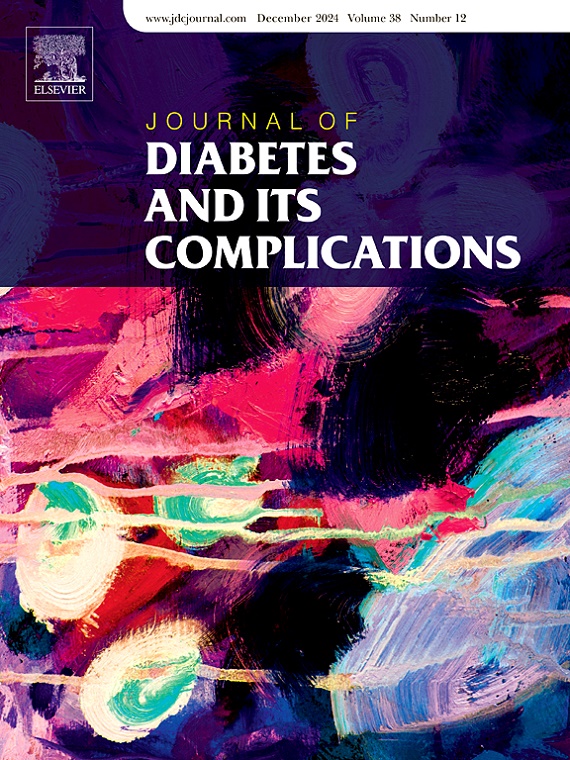人工甜味剂与2型糖尿病的研究进展及未来研究方向
IF 2.9
3区 医学
Q3 ENDOCRINOLOGY & METABOLISM
引用次数: 0
摘要
虽然人造甜味剂通常被认为是安全的(GRAS),但科学界对其安全状况仍存在分歧。以前认为人造甜味剂在人体内是惰性的假设不再成立。人工甜味剂以其高甜度和低热量或零热量而闻名,如今被广泛用于食品和饮料产品中作为糖的替代品,有时被推荐用于体重管理和2型糖尿病(T2DM)患者。市场上的产品标签上普遍缺少有关人工甜味剂浓度的信息,这使得确定人们食用的人工甜味剂的量变得具有挑战性。尽管美国食品和药物管理局(FDA)等监管机构批准了它们的使用,但人们仍然担心它们与代谢性疾病(如2型糖尿病)的潜在关联,而人工甜味剂本应减少这种疾病。这篇综述讨论了人工甜味剂的摄入与发生2型糖尿病的风险之间的关系。随着最近越来越多的科学研究增加了对这一主题的争论,我们评估了最近的文献和最新的证据。重要的是,我们强调了未来的研究方向,以进一步了解这一研究领域。本文章由计算机程序翻译,如有差异,请以英文原文为准。
Artificial sweeteners and Type 2 Diabetes Mellitus: A review of current developments and future research directions
While artificial sweeteners are Generally Regarded as Safe (GRAS), the scientific community remains divided on their safety status. The previous assumption that artificial sweeteners are inert within the body is no longer valid. Artificial sweeteners, known for their high intense sweetness and low or zero calories, are extensively used today in food and beverage products as sugar substitutes and are sometimes recommended for weight management and Type 2 Diabetes Mellitus (T2DM) patients. The general omission of information about the concentration of artificial sweeteners on market product labels makes it challenging to determine the amounts of artificial sweeteners consumed by people. Despite regulatory authorization for their usage, such as from the United States Food and Drug Administration (FDA), concerns remain about their potential association with metabolic diseases, such as T2DM, which the artificial sweeteners were supposed to reduce. This review discusses the relationship between artificial sweetener consumption and the risk of developing T2DM. With the increasing number of recent scientific studies adding to the debate on this subject matter, we assessed recent literature and up-to-date evidence. Importantly, we highlight future research directions toward furthering knowledge in this field of study.
求助全文
通过发布文献求助,成功后即可免费获取论文全文。
去求助
来源期刊

Journal of diabetes and its complications
医学-内分泌学与代谢
CiteScore
5.90
自引率
3.30%
发文量
153
审稿时长
16 days
期刊介绍:
Journal of Diabetes and Its Complications (JDC) is a journal for health care practitioners and researchers, that publishes original research about the pathogenesis, diagnosis and management of diabetes mellitus and its complications. JDC also publishes articles on physiological and molecular aspects of glucose homeostasis.
The primary purpose of JDC is to act as a source of information usable by diabetes practitioners and researchers to increase their knowledge about mechanisms of diabetes and complications development, and promote better management of people with diabetes who are at risk for those complications.
Manuscripts submitted to JDC can report any aspect of basic, translational or clinical research as well as epidemiology. Topics can range broadly from early prediabetes to late-stage complicated diabetes. Topics relevant to basic/translational reports include pancreatic islet dysfunction and insulin resistance, altered adipose tissue function in diabetes, altered neuronal control of glucose homeostasis and mechanisms of drug action. Topics relevant to diabetic complications include diabetic retinopathy, neuropathy and nephropathy; peripheral vascular disease and coronary heart disease; gastrointestinal disorders, renal failure and impotence; and hypertension and hyperlipidemia.
 求助内容:
求助内容: 应助结果提醒方式:
应助结果提醒方式:


